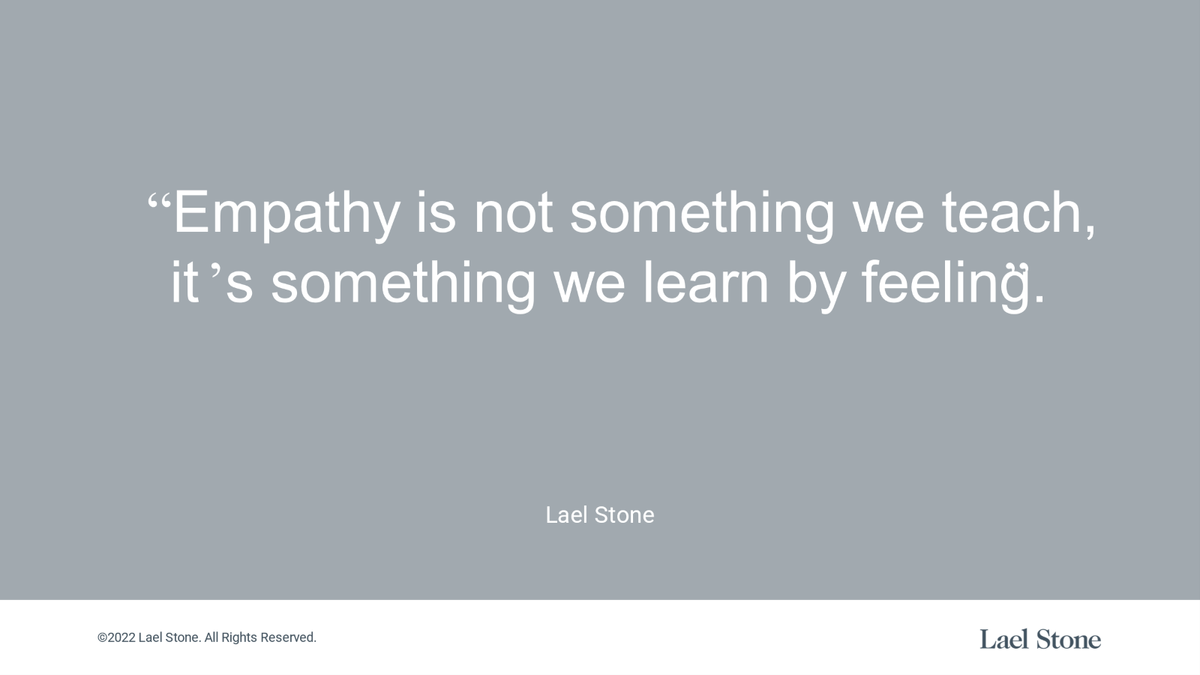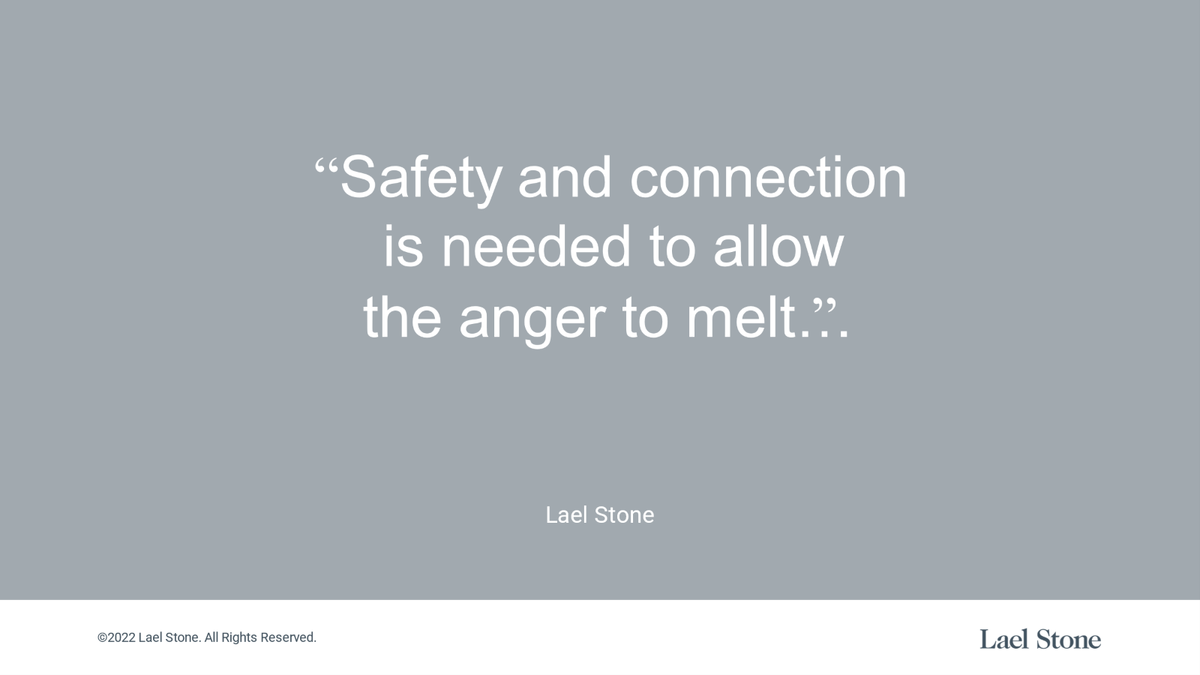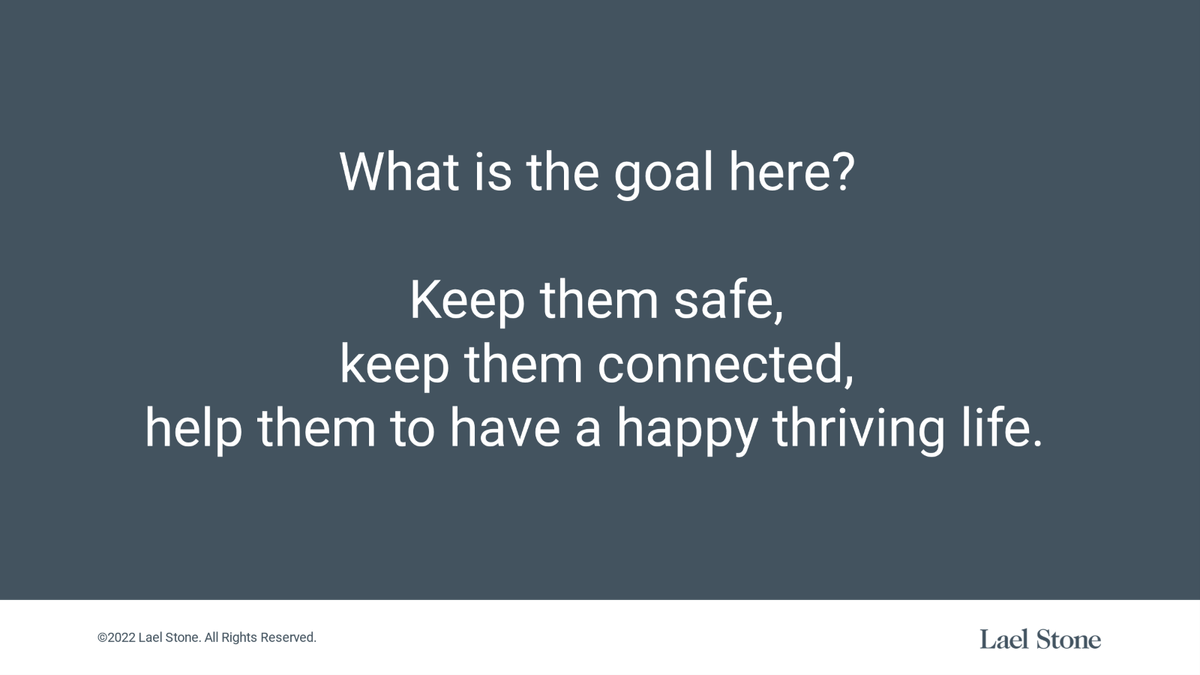Wellbeing News

Connections
We were lucky to listen to Lael Stone https://laelstone.com.au/, an educator, TEDx speaker, author, and parent counsellor, in the first parent information session of the year. She has many years of experience in parent counselling. She spent over five years in secondary schools working with teenagers on sexuality, well-being, and relationships, and her great aim is to empower parents to create connections and stronger relationships with their children.
At Nossal, her talk focused on connected parents. At the start of the talk, she encouraged parents to think about the strengths of their teenagers. The aim was to share with parents strategies that could help build closer connections with their teenagers while supporting their emotional growth. It explored how compassion and empathy have a place in raising children.
Lael described resilience as managing feelings and coping with daily stresses and significant life events. This includes recognising, understanding, and accepting feelings and expressing them in appropriate ways that do not harm others. Young people need to cope with everyday feelings, both positive and negative, such as excitement, anticipation, frustration, and disappointment. All young people experience stressful times. She suggested that parents consider the following questions: Is it OK not to be the best? Is it OK to make a mistake? Are you a safe place where they can talk about what is happening (at any given time) and how they are feeling? Coping with emotions is essential for long-term happiness, well-being and success in life. She encouraged parents to set themselves the goal of keeping their young people safe, maintaining their connections with them and helping them thrive.
Dr Susan David (M. Psychology (Clinical) 2005, PhD 2005) encourages parents to consider “Because we know that no matter what grades children have, and no matter what their outward skills are, ultimately what’s going to be the litmus of whether they are well and happy and thriving human beings is determined much more by what goes on inside of them — their capacity to navigate difficult emotions, thoughts, experiences so that they can bring the best of themselves forward.”
When children become emotionally resilient, there are many benefits for them. They are more likely to be:
Caring and socially skilled,
- Empathic and sensitive to the needs of others
- Able to manage emotions and move through negative feelings to get better again.
- Able to cope with stress, like exams and unpleasant experiences.
Lael referenced the Robert Waldinger longitudinal study on happiness.https://news.harvard.edu/gazette/story/2017/04/over-nearly-80-years-harvard-study-has-been-showing-how-to-live-a-healthy-and-happy-life/
The key findings from this study highlighted that happiness depends on how connected cultures are. This study also proved improved health outcomes, trust, generosity, and better experiences. She advised parents to help their teenagers thrive by ensuring they are emotionally safe, physically safe, consistent, have clear boundaries, and are open to expressing their feelings.
Lael recommended that parents be aware of the manner in which they deal with their young people. Think about whether are you an Authoritarian parent (punishment and grounding), a Permissive parent (keeps the peace at all times) or a Connected parent (holds the space but has clear boundaries). She suggested that connected parents hold the space by listening, listening, listening, and some more listening! Listening without fixing, getting caught up in the drama, and listening without judgement is important. It is essential to listen with an open mind and a growth mindset. Allowing the teenagers to make emotionally safe mistakes and learn from them. She recommended that parents read Rob Grille’s (psychologist) article “Intuitive Parenting: You know more than you realise” https://www.robingrille.com/publications/articles/
Parents should recognise their own triggers and ensure that they look after themselves before they respond to any situation. Parents must ensure they look after their health and well-being with good nutrition and sleep. Before answering, parents should ensure that they are anchored and focused, take a moment to focus on their breathing, see behind the behaviour, and debrief with a listening partner or a friend.
Lael emphasised, “The ultimate goal is for our children to feel deeply connected to us so they know it is safe to be who they truly are. When they are safe to be themselves, they can listen to their intuition, align with their passions, take risks, and know that any failures are applauded as loudly as the triumphs. The default becomes - who I am is enough.”
Tier Two Programs
Nossal has several Tier Two programs running in Term Two. Tier Two programs are targetted small group programs that focus on a particular area of interest. While we continue to run QSA and Formation successfully, we have also run a successful Healthy Masculinities program, “Conscious Man”, and the “I Can” Mentoring program. External providers, with Renee Tuck's (Youth Worker) assistance and a teacher's assistance, have run both programs.
The Healthy Masculinities program is designed to redefine strength and courage using a supportive, small-group approach. Students in the group explore the essence of respect, emotional intelligence, and empathy. Working with mentors in the group, they challenge stereotypes, build resilience, and create positive networks. We are also very grateful for the students who serve as mentors and guides in the group.
The I Can Mentoring program is a weekly one-hour program that works with neurodiverse students. This program has been very popular amongst our Nossal students.
The focus of each session has been:
- Teamwork: Building a sense of belonging and connection among participants.
- Personal Motivations/ Strengths: Goal setting
- SAYING ‘I CAN’: Motivational storytelling: Your story. Mentor stories. Our stories
- Communication: Listening, networking and public speaking skills
- Planning and Organisation: Learning how to create a project.
- Celebration: Planning a celebration of the program’s impact
Welfare Assistance
Nossal High School acknowledges that some of our families occasionally experience financial adversity. Therefore, at any given time over the year, the Wellbeing Team may assist students experiencing financial hardship in the following ways: State School Relief (SSR), uniform assistance, food hampers from Foodbank, and advocacy. We have a list of other agencies and resources that can assist families in their time of need.
Please feel free to contact Ms de Zylva at 0409 416696 via email on Fiona.DeZylva@Nossalhs.vic.edu.au or a member of the Wellbeing team if you have any queries or concerns about well-being.
Our next parent information sessions will focus on Parents as Careers and Transition support. Please keep an eye out for this via Compass messages for these workshops.
Domestic Violence Awareness Month - May 2024
May is Domestic Violence Awareness month and Safe and Equal, Australia’s peak body for specialist family violence services, have developed Are You Safe At Home? a national initiative designed to break down the fear and stigma associated with talking about family violence.
May 10 is Are You Safe At Home? Day, a campaign to raise awareness and encourage members of the community to start the conversation about family violence. Having these conversations can be difficult or uncomfortable, so Safe and Equal have created a suite of resources to support people to feel more confident to open up a conversation with someone they might be worried about.
Check out their website to find a toolkit of resources, including the posters and conversation flow chart attached. You can raise awareness with parents and staff to support them to have a conversation with their friends and colleagues using social media tiles and flyers in multiple languages and easy English, videos on how to have a conversation, or a 20 minute elearn. These resources aren’t just for this month, and raising awareness of key family violence messages and supporting staff and families to help others experiencing family violence should be a part of our ongoing RR action plans.
For confidential information, counselling and support services please contact 1800RESPECT.



